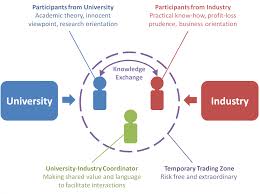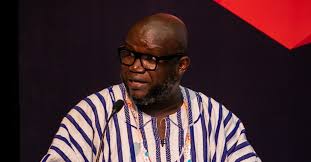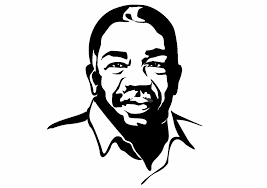Quality Education: The Essential Linkage between Academia and Industry
Speech by Ing. Kenneth Ashigbey, CEO of Ghana Chamber Of Telecommunications, at the 9th Congregation of the University College of Management Studies (UCOMS ) Jerusalem Campus, Accra on Saturday, March 14 December 2019 and at the Kumasi Campus on Saturday, March 21 December 2019.
What is a race without a finish, what is a cause without completion, what is a beginning without an end, what is a cross without resurrection? So, what would be matriculation without a congregation? Nunya, adidoe, asi metunee o—to wit, “Wisdom is like a baobab tree; no one individual can embrace it.”
That is what your education has done for you. I pray it has offered you the ability to garner the hands necessary to be able to fully embrace it. I pray you have also offered your hands to complete the embrace. Acquiring knowledge is not an event, it is a process, this is what your graduation should have continued for you. If you really immersed yourself in your course of study, and you took in all that UCOMS had to offer you, then you would know that this graduation is but the beginning of a life of continuous learning, knowledge acquisition and contribution to making the world, Africa and your Ghana a better place than you met it.
Mr. Chairman to the students, I also pray that you would pass Warren Buffet’s 3-point test for hiring – he says “Somebody once said that in looking for people to hire, you look for three qualities: integrity, intelligence, and energy. And if you don’t have the first, the other two will kill you. You think about it; it’s true. If you hire somebody without [integrity], you really want them to be dumb and lazy”(Szramiak, 2017). It is my hope, therefore, that, the UCOMS education has gone through you all, and that, not only did you go through UCOMS, but your hearts have been formed as much as your head and hands have been transformed. Ghana needs a lot of that kind of graduates at this stage of our development. Leaders with a high dose of integrity.
Today marks the 9th Congregation of the University College of Management Studies (UCOMS) for which I am told we are graduating 275 students. Congratulations to all of you. I know that for a congregation, what some of you grandaunts are waiting for is to receive your certificates, take photograph and celebrate, but I urge you not to fall into that category. I encourage you to do more than that, spend the time to reflect on the theme that the school has chosen: “Quality Education: The Essential Linkage between Academia and Industry”. In this theme is embedded nuggets of wisdom that should help you live a fulfilled post-graduation life.
The need for quality education is so critical within our African context because there so many opportunities for applying critical thinking, innovation and problem-solving skills to deal with the plethora of challenges that confront us a people. All of these outcomes are products of quality education. Education is geared towards the holistic development of a person. It aims at developing the cognitive, psychomotor, and affective modes of human development right from the Pre-school stage through to the Tertiary levels of education.
Hornby and Crowther, (1984) state that education is the process by which the mind develops through learning at school. The educated individual develops physically, mentally, emotionally, morally and socially. In its simplest form education can be explained as the enlightenment of an individual from darkness to light, thereby pushing away the frontiers of ignorance and discovering the truth. Education can take place anywhere.
The tertiary education that you have received aims at developing for the student an intellectual and analytical mind, equipping you with knowledge and skills to conduct basic and applied research, which would result in the production of high and middle-level human capital for the various sectors of the economy (Salmi, 2017). In the present knowledge-driven economy, tertiary education holds the key to expediting Africa’s quest to bridge the developmental gap, it plays an important role in the creation, dissemination and application of knowledge to meet developmental needs (Swanzy, Langa, & Ansah, 2018). Hung and Phuong (2019) confirm that for post-secondary education to be considered a success would be contingent to a very large extent upon the tuition given to pupils from pre-school to secondary levels o and that minus quality basic education it will be nearly impossible to have quality tertiary education. So, Mr. Chairman as we discuss Quality Education: The Essential Linkage Between Academia and Industry, we cannot restrict our focus only on the tertiary education UCOMs offers here. We need to stretch back through the entire educational system
Quality education is a requisite for the development of any people, it should be important for the Industry, Academia, the State and the general populace. It requires placing the right systems and structures in place such as offering quality inputs and systems in the educational process to help achieve outstanding results that are required.
Is our education focused on offering a rounded and quality approach that creates well-balanced individuals with the requisite knowledge, skills, values, aptitudes and attitudes for self-realization, the socio-economic development and political transformation of our country? What is your answer to this, what empirical research have we done to support whatever assertion you make? Note that in all the attributes listed above attitude is critical to surviving in this current world of unemployment and underemployment.
Adu-Agyem and Osei-Poku (2012) in research Quality Education in Ghana: The Way Forward – say that to achieve quality education, the individual being educated should be developed intellectually, psychologically, spiritually, emotionally, physically and intuitively to positively contribute towards national development and adapt to technological changes and other innovations.
It is important to create an environment that will help promote and sustain quality delivery in the Ghanaian educational system. This is a shared responsibility between the managers of our educational system and corporate Ghana. Quality education delivery involves the process through which motivated and well-trained lecturers and teachers use student-centric approaches in well-managed teaching and learning environment, within a Total Quality Management framework in addition to skilful assessment, effective use of time, right attitude towards learning, effective supervision, as well as good discipline not forgetting other factors such as the effective use of information and communication technology as a tool for learning (Abubakar, Freeman, & Oppong, 2019). It is important that quality education is future-proofed to prepare the students for the world they would come into and so our education should be forward-looking. This can only happen when there is a close partnership between academia and the industry, the situation where academia blames the industry for not training students that they educate while industry castigates academia for not educating the students well enough for them to train and deploy should be done away it. It would not serve our purpose as a nation.
I have heard the complaints of some in industry complain about the quality of our products leaving our schools. Recently my brother Senyo Hosi who is a CEO of another Chamber lambasted academia when he said to his alma mata “You are churning out people with degrees not people with an education, not people with skills.” I also remember that Dr. Ishmael Yamson, during his speech at the 2001 matriculation at the University of Ghana complained about the quality of the school’s products? When I first delivered this paper at the Accra Campus of UCOMS, I had one of the professors blame Industry for not training the students after they had educated them. He asked to see the training budget of Industry. The debates that ensued after these comments make this topic an important one and I would urge UCoMs to commission research into the subject so that we can move away from perception to evidence-based problem identification which should result in finding solutions that come up with recommendations of how we can fix this challenge.
But can Corporate Ghana be absolved of the all blame for the state of our education, truly are they training enough and are they contributing to the educating being done by Academia? But is our education that bad? I do not think so, though I agree there is a lot of work that is required to get us to where we ought to be, Educating and Training have to be a continuum, with feedback loops from one to the other and each affecting the other to improve it. They cannot exist in isolation, New York has done it by ensuring that the highly educated engineering graduates also have the skills set suitable for positions in manufacturing plants (Wessner & Howell, 2020). What are the factors militating against achieving quality education in our Ghanaian educational system, which need to be addressed; This is some of what literature suggests;
- Lack of adequate teaching and learning facilities.
- Poor infrastructural facilities
- A low number of well-motivated and committed teachers owing to unattractive salaries and conditions of service.
- An inadequate number of trained and well-motivated teachers to promote quality education.
- Absence of proper guidance and counselling services especially at the Junior High School level.
- Absence of performance standards for each subject.
- Overloaded curriculum especially at the Senior High School level.
- Mass or wholesale promotion at the basic level and even in some tertiary institutions
- Ineffective use of contact hours.
- Too much pressure on the few endowed schools in the urban areas.
- Poor management and supervision in schools by heads and education officers.
- Lack of funding for educational institutions.
- High pupil/teacher or student/lecturer ratio, especially in cities and suburban areas
- Misalignment between the needs of industry and curriculum of schools
- Absence of collaboration between academia and industry
So, for this discussion let’s concentrate on the last couple of challenges identified and discuss how to improve the quality of our education by leveraging on the essential linkages between academia and industry. It is without a doubt that to improve the quality of our education and to future proof it, we need both academia and industry to work together and look at education as also encompassing training that would happen in industry. There is enough blame to go around all parties but we are better off focusing on solutions rather than who did or did not do what!
Quality of education should be defined from a customer perspective and based on the impact that it makes on society. It should not be limited only what Academia defines as quality nor only on process, it should be demand-led and not supply-driven. Quality should be based on specific key performance indicators including student support, instructional; procedural quality; student performance, employability etc. (Degtjarjova, Lapina, & Freidenfelds, 2018). So, the problem question statement should be what skills sets, knowledge and insight are required by students now and into the future. However, in answering the question we should not sacrifice long term strategic need for the short-term interest, there should be a good balance. The solution has to be well thought through by all parties, Academia with Public, Private & the 3rd sectors, it has to be all-inclusive. Industry should also be interested in what happens at the primary and secondary levels as that is what would feed the tertiary sector with the raw materials
Mr. Chairman, Leverage on membership of Academia Councils and Industry Boards:- Industry players who serve on board of Universities and Academics who also serve on Industry Boards have opportunities that I believe we are not currently exploiting fully. All the University Councils in Ghana have persons of industry serving on them, sometimes you have as much 40% of the council being from Industry, with Industry giants like Dr. Aaron Issa Anafure, Sir Sam Jonah, Ishmael Yamson, Mary Chinery-Hesse all chairing some of these councils. So, there are opportunities for Industry to interact and influence the quality of educations at this level where policy and direction for the schools are determined. But I am sure you would agree with me that there is a lot more that should be done to deepen the collaboration beyond Council meeting, these captains of industry drawing a lot more of their compatriots to contributing to producing the labour for the future job market. So, Industry cannot just be complaining but start taking advantage of these opportunities that are offered with these partnerships to contribute a lot more to improve the quality of our educations.
Additionally, increasingly we are beginning to see academia serve on boards of Corporate Ghana, this is a great practice. In my days as CEO of Graphic Communications Group Ltd, I had the honour of serving under two Academics Prof Naana Opoku Agyemang and Prof Omane Antwi. These were two great leaders and they sought to infuse the industry they served with inputs from academia. These opportunities to serve on boards should go beyond board fees to serving as fertile ground to grow the synergies between academia and industry to improve the quality of our education. It is important once Academia gets to serve on boards of industry, they should use these opportunities to deepen the partnership to improve the quality of education. These Industry-Academia partnerships are increasingly being acknowledged as a new way of providing education opportunities with this very important for us in African where there are skills shortages for the new ways of work (Flynn, Pillay, & Watters, 2016).
Some of the things that Industry have not done well enough in this partnership have been the failure of contributing to shaping the curriculum even when opportunities have been offered. I am aware of cases when Universities have invited industry to contribute to review the curriculum of programmes and industry have failed to take advantage of opportunities. Industry also needs to signal to academia the issues they should focus on. Industry should ask for answers they, need to key problems facing the economy. Because this is a continuum, academia needs to be constantly preparing the people for industry’s future as well as finding solutions for today problems.
Academia also has major roles to play moving us to evidence-based planning and decision-making. I believe academia needs to do more in helping to provide evidence-based ideas and solutions that industry can commercialize to provide goods and services to all. For this, we require Academia to do more of the reaching out and Industry should be open for business. This for me is basic and is at the heart of our challenges. If academia is not impacting industry and the real economy then we have a problem. This has to be fixed through the synergies that have to be built. I really don’t believe Ghanaians respect knowledge as much as we ought to do. But there is also a new craze for titles and you can see that in the way some supposedly respected members of our societies are abusing honorary doctorate degrees. We like the big names but it is not enough to be ‘book-long’. Academia would do well for themselves and earn a lot more respect if there is a lot more linkage between these big academic titles and the solutions to the problems that we face as African.
We need to deepen the partnerships between Industry and Academia in terms of internship. Both parties should be involved in what students do when they go for these internships and when they come back to school what they have learnt should impact what they do in school and determine their assessment. This can only happen when the internships are designed and planned by both academia and industry (Afkhamzadeh & Rasouli, 2018). Also, the internship should not only be for the students. Industry should offer opportunities for Faculty to also come to serve in industry to discover some of the new trends coming up in industry and also help industry to apply theory from academia to impact what they do. Again, I remember when I was at Graphic, I offered this opportunity to one of the Universities to send their lecturers to take advantage of this prospect. But the opportunity was dismissed, so it is important that when Industries reaches out to academia they should be open to accept and also reciprocate. Academia should also offer opportunities for Industry players to be sessional staff or adjutant lecturers and in the process share some of the challenges that they face currently in industry and project into the future, so together between Industry, Faculty and Students they can work on these insights and in the process shape teaching, learning and research (Muvui Muya, 2019).
It is very critical for the partnership to shape research projects and thesis that are done in our universities. Industry players should offer their challenges to academia to research and partners them to commercialize the output. So that the research, thesis and dissertation that students and faculty embark upon would also include solutions to challenges that currently confront us as well as come up with innovations for the future. Not only should the topics be agreed together but some members of industry also serve as mentors for these projects. Industry should also offer their facilities to be the laboratories and incubators for testing some of the results and solutions of these researches. This arrangement has to be structured and periodically reviewed and should form a critical part of the industry and academia engagement and partnership (Kelly, Dollinger, & Coates, 2016).
As Industry players contribute to the shaping of curriculum, Academia should also be proactive in looking into local challenges confronting the nation and industry. This would also require government playing a facilitating role. Offering some national projects and assignments for solutions to the country’s problems to consortiums of Academia and Industry. There should be some financial incentives for the industries that would opt to be in these consortiums with Academia. Also, there could be some matching grants from government for all the resources that Industry would put into these consortiums. Additionally, government should put in place, processes to protect the Intellectual Property of the outcome that the ventures that Academia and Industry consortiums come up with.
Industry Associations like the Ghana Chamber of Telecommunications should also reach out to academia to take on local challenges to find solutions. Professional Bodies, like the Ghana Institution of Engineering, Project Management Institute, IoD, etc who are made up both Industry and Academia should collaborate and serve as a bridge between the two to help improve quality of education. This should form a major part of their programmes. Their student membership programmes should be to improve the quality of what is learnt and taught today and into the future. They should be interested also in what is being taught at the basic and secondary levels (Freeman & Evans, 2016). I would support a programme where professors and top academics, as well as Industry leaders, would have a scheme where together they go to primary schools and enlighten the pupils. A true master of a subject should be able to break a subject down to a 10-year-old pupil to understand. We have to link up our top minds from both academia and industry to our most fertile minds. It is these young minds that will build the industry of tomorrow.
If we all agree that industry is a major driving force of the economy, then our Universities must ensure that graduates will be functional in the skill-based industries for today and the future. We cannot be producing students for industries that are extinct even now or would be non-existent when they graduate. But how would Academia know what industry requires if they are not talking to or are being spoken to by industry? Furthermore, with the world now being a global village and we live in a digital transformation era, Universities must produce global digital natives. Graduates who can operate outside the borders of our Ghana and within the digital era and ride the fast-changing pace of technology which is disrupting every industry. These transformations, if managed wisely, could lead to a new age of good work, good jobs and improved quality of life for all, but if managed poorly, pose the risk of widening skills gaps, greater inequality and broader polarization (Leopold, Vesselina, & Zahidi, 2018).
Also, Academia must work with Industry to build strong entrepreneurial and intrapreneurial skills into the students and the curriculum, it is important to emulate countries like Malaysia, UK and our neighbour Nigeria who have mainstreamed entrepreneurship education and training into their curriculum (Nyadu-Addo & Mensah, 2018). If we continue producing students for yesterday work environment where on graduating, the fresh graduates expect to find ready jobs to be employed into which is completely different from future of work and businesses that are non-existent even today, then that cannot be quality education. This would require structured mentorship programmes that would shape not only what students learn but also offer then opportunities to test their ideas as well as teach them how to work in teams. We are in the world of multi-disciplinary teams and we have seen great businesses built right from university campuses. Especially in Ghana where building teams for our business is our Achilles heel, we need the students to have a paradigm shift and realise that 1% of a trillion is better than 100% of a million
Between Industry and Academia, we need to be strategic in our thinking of educations and training. What are our current challenges confronting us as a country, what are the opportunities that are open to us, what are our strengths and our weaknesses? So, looking into the future can we correctly determine what strategies we should craft and how should we be executing them effectively so as to deal with factors affecting the future work place as Leopold et al. (2018) postulate in the Future of Work report 2018:
- Drivers of change —ubiquitous high-speed mobile internet; artificial intelligence; widespread adoption of big data analytics; and cloud technology
- Accelerated technology adoption
- Trends in robotization:
- Changing geography of production, distribution and value chains
- Changing employment types: Nearly 50% of companies expect that automation will lead to some reduction in their full-time workforce by 2022, based on the job profiles of their employee base today.
- A new human-machine frontier within existing tasks
- Growing skills instability
- A reskilling imperative:
- A net positive outlook for jobs: There is optimistic estimates around emerging tasks and growing jobs which are expected to offset declining jobs. Are we educating and training our workforce to be able to take up these new jobs with the appropriate skills sets required?
- Emerging in-demand roles: Among the range of established roles that are set to experience increasing demand in the period up to 2022 are Data Analysts and Scientists, Software and Applications Developers, and Ecommerce and Social Media Specialists, roles that are significantly based on and enhanced by the use of technology. Also expected to grow are roles that leverage distinctively ‘human’ skills, such as Customer Service Workers, Sales and Marketing Professionals, Training and Development, People and Culture, and Organizational Development Specialists as well as Innovation Managers. There is accelerating demand for a variety of wholly new specialist roles related to understanding and leveraging the latest emerging technologies
These imperatives should then shape how our curriculum should be fashioned and the teaching and learning should not be limited to only the classroom but should also be in the Industry for which the students are being produced for. Let me reiterate that the state also has a major role to play in facilitating this marriage that is required to improve the quality of our education. It should make a conscious effort to bring Academia and Industry together to deal with national challenges and opportunities when they come up. Tax waivers, matching grants, protection of IPs and other incentives should be used to drive this partnership to enhance and improve educations.
In Conclusion
The Institute of Applied Science and Technology of University of Ghana example is worth adapting, adopting and replicating. This is an Institute to enhance the transfer of knowledge, technology and innovation from University research to meet the needs of industry. It is a multidisciplinary institute bringing together researchers from the entire university. The programmes of the Institute are industry-led through the establishment of an Advisory Board with strong representation from Ghanaian industry. This council should be executive in nature than just advisory.
Also, the UCOMS new direction needs to applauded. The new courses that are being planned in the coming year is the way to go to future proofing our education, new courses like Early Childhood Care and Management, Health Services Administration, Leadership and Governance, Risk Management, Defence, Crime Management and International Politics, Fraud, Forensic Accounting and Auditing are good programmes for the future. I would also recommend to the school authorities to also consider programmes in Data Science, Data Privacy, AI and Machine Learning Specialists, Big Data, Process Automation, Information Security Analysts, User Experience and Human-Machine Interaction Designers, Robotics Engineers, and Blockchain Specialists. I would also recommend to the Rector that beyond expending faculty to research and publish in reputable journals collaborating with academia from other institutions and their students, they should also collaborate with Industry in these endeavours too.
To you the grandaunts I say ‘ayekoo’ for your perseverance, hard and determination. It is not easy but you have made it amidst all the challenges. Bear in mind you are the creme de la crème of our society, you are less than 1% of your peers you started school at the pre-school level with who have made it to this point. You have been given quality UCOMs education. Do not go out waiting to be employed, you need to build the future you need. Have a plan, start small but innovate fast and be agile. The mantra should be multiple sources of income, I recommend agro businesses driven by technology for you.
To you lecturers and administrators, I say ‘your efforts have not been in vain’. You have made an impact in the lives of these grandaunts. Thank you very much.
To your parents, guardians, sponsors and friends, I say ‘Thank you for supporting a good course”. Without your support, the achievements we are celebrating today would not have materialized.
Thank you all. God Bless Our Homeland Ghana
Tswa Omanye Abla Wo
Bibliopgraphy
Abubakar, N. J., Freeman, E., & Oppong, K. F. (2019). Modeling total quality management framework for higher education institutions in Ghana. Proceedings – 2019 International Conference on Computing, Computational Modelling and Applications, ICCMA 2019, (March), 87–95. https://doi.org/10.1109/ICCMA.2019.00021
Adu-Agyem, J., & Osei-Poku, P. (2012). Quality Education In Ghana: The Way Forward. International Journal of Innovative Research & Development, 1(9), 15. Retrieved from https://www.researchgate.net/publication/314414554_Quality_Education_In_Ghana_The_Way_Forward
Afkhamzadeh, A., & Rasouli, M. A. R. (2018). Quality of education in community medicine externship and internship: Perspective of medical students of Kurdistan University of Medical Sciences. Iranian Journal of Medical Education, 17(55), 516–521. Retrieved from http://ijme.mui.ac.ir/article-1-4344-en.html
Degtjarjova, I., Lapina, I., & Freidenfelds, D. (2018). Student as stakeholder: “voice of customer” in higher education quality development. Marketing and Management of Innovations, (2), 388–398. https://doi.org/10.21272/mmi.2018.2-30
Flynn, M. C., Pillay, H., & Watters, J. (2016). Industry–school partnerships: boundary crossing to enable school to work transitions. Journal of Education and Work, 29(3), 309–331. https://doi.org/10.1080/13639080.2014.934789
Freeman, M., & Evans, E. (2016). Professional associations, accreditation and higher education: Foundation for future relations. Academic Leadership Series, 7, 63–76.
Hornby, A. S., & Crowther, J. (1984). Oxford Advanced Leamer�s Dictionary of Current English. (A. S. Hornby & J. Crowther, Eds.) (Vol. 7). London: Oxford University Press. https://doi.org/10.1177/003368827600700111
Hung, L. T., & Phuong, P. T. A. (2019). Student Skills and Employability: A Study from Students’ Perspective. VNU Journal of Science: Education Research. https://doi.org/10.25073/2588-1159/vnuer.4220
Kelly, P., Dollinger, M., & Coates, H. (2016). New Directions for Quality Assurance: Transparent Outcomes for Industry Collaboration, Research Training and Student Success. Higher Education Evaluation and Development, 10(1), 31–51. https://doi.org/10.6197/HEED.2016.1001.02
Leopold, A. T., Vesselina, R., & Zahidi, S. (2018). The Future of Jobs Report 2018. Geneva. Retrieved from http://www3.weforum.org/docs/WEF_Future_of_Jobs_2018.pdf
Muvui Muya, S. (2019). Students’ Perceptions on the Quality of Teaching by Faculty at Jomo Kenyatta University of Agriculture and Technology in Kenya. Higher Education Research, 4(1), 1. https://doi.org/10.11648/j.her.20190401.11
Nyadu-Addo, R., & Mensah, M. S. B. (2018). Entrepreneurship education in Ghana – the case of the KNUST entrepreneurship clinic. Journal of Small Business and Enterprise Development, 25(4), 573–590. https://doi.org/10.1108/JSBED-02-2017-0062
Salmi, J. (2017). The Tertiary Education Imperative Knowledge, Skills and Values for Development. (P. Altbach, H. de Wit, & L. Rumbley, Eds.), Global Perspectives on Higher Education. Center for International Higher Education at Boston College.
Swanzy, P., Langa, P. V., & Ansah, F. (2018). Quality Assurance in Ghana: Accomplishments and Challenges. International Higher Education, 94(94), 28–30. https://doi.org/10.6017/ihe.2018.0.10549
Szramiak, J. (2017). What Warren Buffett looks for in candidates – Business Insider.
Wessner, C. W., & Howell, T. R. (2020). Educating and Training a High-Tech Workforce. In Regional Renaissance: How New York’s Capital Region Became a Nanotechnology Powerhouse (pp. 217–276). Cham: Springer International Publishing. https://doi.org/10.1007/978-3-030-21194-3_8
This post has already been read 2348 times!








Post Comment